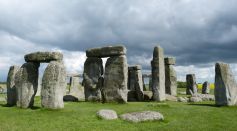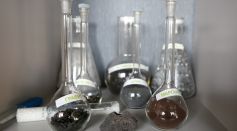CHEMISTRY

Ancientbiotic: 1,000-Year-Old Medical Manuscript Uses Garlic and Onion as Remedy to Kill Antibiotic-Resistant Bacteria

Archaeologists Finally Discover the Origins of Stonehenge
Japanese Scientists Discover How Hydrogels 'Mimic Biological Functions'
Natural Lithium in Drinking Water Linked to Lower Suicide Rates

Goodbye Contaminated Water, Hello Bacteria-Driven Solar Power Purifier

Scientists Discover Bacteria that Eats Metal and Produces Manganese Oxide

Seawater to the Rescue: Providing Possible Unlimited Lithium Supply for Growing Demand

Love During a Global Pandemic: These People Are Proof That It’s Possible

The New Ice Age: Drinks Expert Reveals What Makes Your Ice Cool Enough This Summer

The Best Science Parks in the UK and Why You Should Study at Them

A Guide to Completing Good Biological Scientific Research
Stanford Bioengineers Manipulated Molecules to Create Proteins That Fight Off Cancer and Recreate Neurons
A Star Is Born: Some Individuals Are Musicians Since Birth, a Study Involving 6-month Infants Suggest
Anti-Terrorism Expert Warns Everyone to Never Swim in a Las Vegas Pool: What Does Science Say?
Most Popular

Orionids Meteor Shower Happening Next Week: Where and When To Catch the October Light Show's Peak

Texas Official Shot Down Siren Flood Alert, Complaining That It Might Go Off 'In the Middle of the Night': Report

Nvidia's Jetson Thor Could Make Humanoids Smarter Than Ever

Hellfire Missile Video Reveals MQ-9 Reapers Being Used for Aerial Combat





